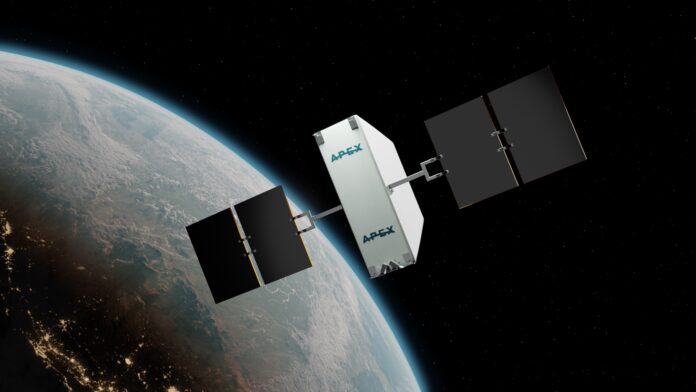New Satellite for GEO Missions
A startup called Apex has created a new satellite for geostationary orbit (GEO) missions.
The company from Los Angeles revealed on August 15 that it’s now selling the GEO Aries, an upgraded version of its earlier Aries small satellite bus designed for low Earth orbit (LEO).
CEO Ian Cinnamon shared that they’ve already sold almost a dozen Aries satellites and received requests for a GEO-adapted version. These new missions span from monitoring space activities to focused communications.
“We’re seeing a ton of demand from both the commercial and government sides,” he mentioned. “So, what we wanted to do was take as much as we could from the Aries vehicle and create GEO Aries.”
The GEO Aries, weighing 175 kilograms, has updated communication and control systems for GEO operation. It can carry payloads up to 120 kilograms and achieve a velocity change of 800 meters per second. This satellite will last five years and works with rideshare options and orbital transfer vehicles like Helios and Blue Ring.
A government customer has already ordered the first GEO Aries, scheduled for mid-2026 delivery and launch by the end of that year. Each unit costs $13.5 million.
The production line for GEO Aries is in the same Factory One facility in Los Angeles, where the LEO version is made. This factory will also produce bigger models like Nova and Comet, which might get GEO versions in the future.
In June, Apex secured $95 million in Series B funding to boost Aries production and develop larger bus models. The company noted strong interest from commercial and government sectors.
While LEO Aries demand is ten times higher than GEO Aries, the higher price narrows the revenue gap.
Cinnamon noted potential for Aries in cislunar or deep-space missions but is cautious about their market. “I think that cislunar and deep space are incredible opportunities in terms of the kind of science pushing it forward, but I am not yet convinced that there’s a massive commercial market for those yet,” he said.
For now, Apex will focus on LEO and GEO missions, where demand is strongest. They are open to selling GEO Aries for other missions if customers modify them.
People sometimes wonder what new space tech can achieve in the future.
